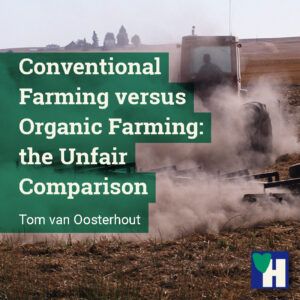
Conventional farming versus organic farming is an unfair comparison. Hannie and I are organic fans. For us, organic is the only truth about food. We want conventional farming to convert to organic, and we want this NOW. Some very relevant questions need to be asked about conventional farming. We also need more organic converts.
Farmers, the agricultural industry, and many consumers believe that the conversion from conventional to organic agriculture is too complicated. Most people shy away from complicated, specifically when it comes to food. The responsibility is firmly put in the hands of the government. However, most governments make unfair comparisons between conventional and organic farming.
This is why we suggest that we better not wait for the food and agricultural policies to change to organic. We have to act now ourselves. We also have a responsibility.
Some of the links are affiliate links. As an affiliate associate, we earn a commission when you purchase any of the products offered through the shared links at no extra cost for you. This helps us maintain this website.
Table of contents
- 1 We want an agricultural policy change: NOW
- 2 Some relevant questions need to be answered
- 3 Banks determine agricultural policies
- 4 Do you trust your organic chicken?
- 5 We need more organic converts
- 6 Buy local
- 7 Conventional Farming versus Organic Farming: the Unfair Comparison
- 8 Low-cost program of organic food consumption
- 9 Moderation is the key
We want an agricultural policy change: NOW
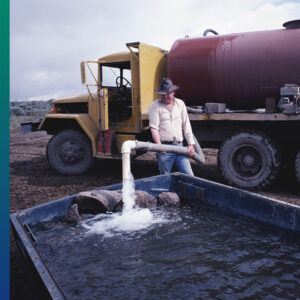
What are the effects of our present food and agricultural policies? It is not easy to find a clear and comprehensible answer to this question. It is a time-consuming effort. No politicians, or governments, consistently do any effort to collect such information, let alone share it with the citizens.
The lack of a clear-cut and convincing political guidance makes many consumers very uncertain. Consumers have no idea which choices they should make themselves. Moreover, we ask ourselves: what choices do we have? What can we do?
We think that everybody can contribute to sustainable food and agriculture. However, despite the fact that we’re full of positive hope for the future, a more urgent approach would be more appropriate.
Related: Organic Companion Planting for a Healthy Kitchen Garden
Some relevant questions need to be answered
The obvious problem that hampers consumers’ choices, is that consumers can only make a choice when they go shopping. In the supermarket, where most people buy their (fresh) fruits and vegetables, we get no immediate, or only very limited, feedback on what we buy.
On the open-air market, it’s even worse. There we don’t even get told where the produce comes from. One step, to more appropriate food and agricultural policies, is that we get answers to some relevant questions at the place where we buy our food.
To mention just a few of these questions.
- Has any pesticide, herbicide, or fungicide been used on (seeds of) the fruits and vegetables we buy?
- What has been the impact of the food on the use of water?
- What is the total amount of the energy used before we buy the food (including, the use of machines during harvest, cooling and cleaning etcetera)?
- Is an assessment made of the impact on biodiversity?
- Are all the labor conditions advocated by the International Labor Organization (ILO) respected? During production, and distribution, as well as selling?
- Did the farmers and the employees involved get properly paid?
Banks determine agricultural policies
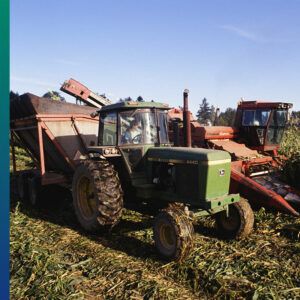
Food and agricultural policy strategies are unclear for most people. These are always long-term policies. When they need to change, it takes quite some effort. The changes will only come in the very long run.
Take for instance the new EU Common Agricultural Policy (CAP). The new CAP hardly changes anything in the food and agricultural policies of the EU. In the next 25 years, everything will remain as it has been for the past fifty years.
Most people put their trust, when it comes to food and agricultural policies, firmly in the hands of politicians. This is a mistake because politicians are not in control. Food and agricultural policies are determined by banks.
In most countries, only 1 or 2 banks determine long-term food and agricultural policies. As a consequence, there are only a very limited number of people that decide on these policies. Most of them are male and never visit a supermarket, let alone an open-air market, or a farm.
Do you trust your organic chicken?
A friend of ours asked how we could be sure the chicken we buy is truly organic. Our answer is that the only way to be relatively sure is when we would check the egg where the chicken came from. All organic eggs are numbered. Since organic chickens also come from eggs, which must be the result of the mating of an organic hen and an organic rooster, this must be the only way to be sure.
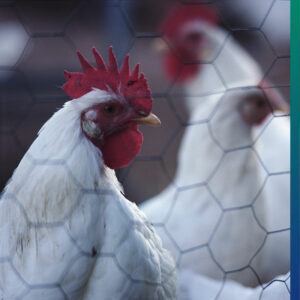
Of course, this is a typical egg-and-chicken-question. And a joke. As with all our food, we have to trust the labels. Because all certified organic food must be labeled, it’s easy to know what is organic and what not.
“Yes”, our friend said, “but there is so much fraud in organic food.” We don’t think so, because the concerns, for all those involved, are huge. However, the counter-question is of course: Do you trust a conventional chicken?
How many hormones have been injected into your conventional chicken? What is the impact of these hormones on your hormones? No conventional chicken explains whether it’s hormone-free. And the hormones are just one issue. Conventional chickens are not okay by definition.
We need more organic converts
With organic chickens, you may assume that these are okay. It’s the same with organic eggs. Anyway, it’s easy to recognize the difference between an organic and conventional chicken. Fry or cook the chicken, the size of the conventional chicken will shrink at least a third.
This is why it is so important that we as consumers make it an issue to show what we think of conventional food and agricultural policies. Moreover, we all should buy more and more organic. This is why we need more organic converts.
People who buy organic truly support healthy long-term food and agricultural policies. They also support their own health. And a healthy environment.
Buy local
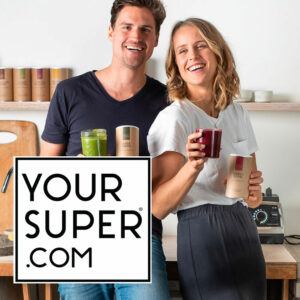
We buy our organic produce locally. There are small eco-shops in the village where we live and other villages in the neighborhood. Most of them started home delivery during the pandemic.
This was helpful during the lockdowns. They were allowed to pick up fresh fruits and vegetables from local farmers and transport it to their shop, and the homes of their customers.
The advantage of buying organic local, is that distribution and preservation costs are low. Moreover, the prices of the organic fruits and vegetables we buy are competitive to those of conventional food.
Conventional Farming versus Organic Farming: the Unfair Comparison
The price differences between organic and conventional food are the result of some very unfair practices. Conventional food destroys biodiversity, and the soil. It also pollutes our air and water. Future generations will have to pay for those damages.
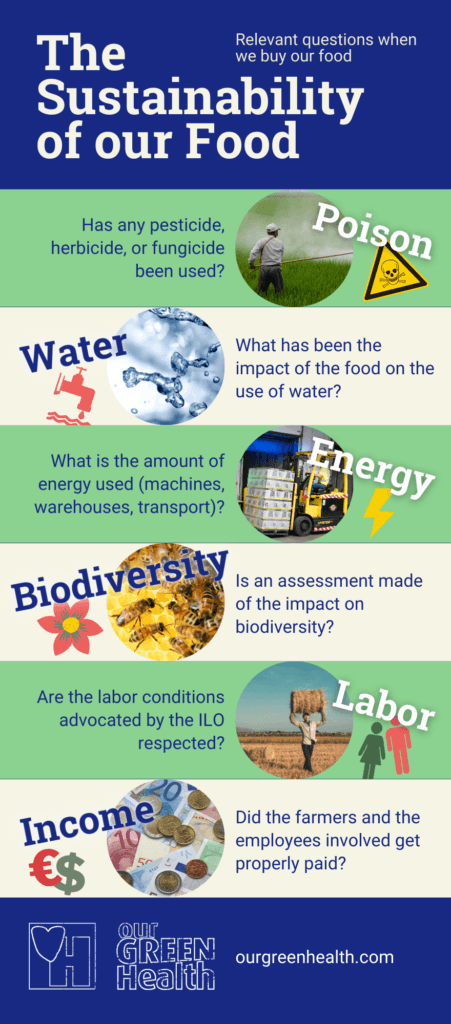
Organic food must always be certified. Organic farmers, the organic food processing industry, and organic shops have to pay the certification bill. Of course, this bill is presented to the consumers. How else can these companies survive?
Conventional foods do not come with certification costs. Moreover, organic food has to be processed separately from conventional food. This drives up the costs, because the amounts of organic foods processed are small, compared to conventional food.
Low-cost program of organic food consumption
When we only compare the price we pay for one organic or one conventional apple, the difference may be substantial. We use, however, a way to control the costs of organic food without depriving ourselves of what we need.
We do not eat too much and never throw away any food. We only eat 100-150 grams of organic chicken, or turkey, or fish, a week. For most of us, that is enough.
We consume a well-balanced diet, dominated by fruits and vegetables. At the most, we eat 1 or 2 eggs a month. Our consumption of milk and cheese is also very limited. We never add any salt to the food we prepare.
The amount of bread, potatoes, pastas, and rice we eat is also limited. We don’t mix those with the fish, meat, or eggs we eat. We only eat twice a day, vary what we eat daily, and eat according to the seasons.
Moderation is the key
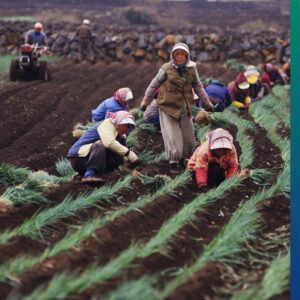
Organic food and health are related. Not being bothered by pesticides, herbicides, or fungicides, in the long run, is good for our body. Whereas, the immediate effects of organic food on biodiversity are substantial.
Don’t forget that fresh food is usually healthier than meat and prepared food. Moreover, too many organic chips and organic cookies can raise our cholesterol to the same unhealthy levels as with conventional processed fast food.
Your personal conversion to eating organic food is very simple: moderate your food intake. This is the key element to good health, and sustainable food and agricultural policies. When you keep up our low-cost program of organic food for a couple of months, the money you spend on your food bill will remain the same. Moreover, your body and conscience will feel much better.
Please, share your ideas of the unfair comparison between conventional and organic farming with us in the comment box below.


I fully agree with you that we need more organic converts. Organic food is so much better for us, and should not cost more than the fruit and veggies that are full of chemicals and pesticides. Non-organic food should also have labels to tell the consumer what harmful stuff was used during the production process. We are in the fortunate position that we do grow a lot of our own veggies, and at least that way we know that it is organic.
I find it interesting to see that you only eat 1 to 2 eggs per month. I do not eat red meat, only chicken and fish about 3 times a week. But I have at least 12 eggs a week as one of my protein sources. We used to keep our own hens, but the fox kept on getting them. I do buy free-range eggs, which is not always organic unfortunately. Is there a reason that you eat so few eggs?
Hi Line,
Let me first answer your egg-question. Our daily diet contains a variety of protein containing foods, such as all sorts of fruits and vegetables, and nuts and seeds. We eat very little cereals and whole grains, and only a little bit of chicken, turkey or fish (once week a maximum of 150 grams). This mix provides us all the types of protein we need at our age.
Compared to eggs, the fruits, vegetables and nuts and seeds we eat, pose a far less risk of diabetes-2 and heart disease, which are both linked with lecithin. Eggs are the most important source of lecithin. The problem is that most scientific research on the impact of eggs, does not cover people who eat more than 6 eggs a week!
It’s good to see that you support our arguments for organic food. In The Netherlands, all hell broke loose when one of the largest supermarket chains started a publicity campaign to address little children about biodiversity. After years of skinning farmers of a proper income, opposing any legislation or action to promote organic, and still selling food well beneath sustainable prizes, they now try to convince children how committed they are to biodiversity. Shame on them (this supermarket chain that is).
Thank you very much for your comment. Keep up the organic convert work, and good luck with your kitchen garden.
For now, stay safe, stay healthy.
Regards,
Tom
Hi Tom. Thank you for a very interesting article. I couldn’t agree more than in the last decades the world went in a very wrong direction regarding food production. Pesticides, GMOs, factory animal farming – it all affected in creation of food which is maybe cheaper but definitely not good for our health. Now something is changing, and we see more and more organic products yet it’s still a small percentage of all food that it is on market. I’m putting a lot of effort to make sure my family is eating healthy, buying products from local producers, and avoiding bug corporation yet it takes time and money and I’m afraid not everyone can afford it.
Hi Cogito,
Thank you for your comment and compliment. Always appreciated.
One of the most striking pictures I came across during the past 3 months, is one where you see endless lines of cars picking up food packages at the food bank. Of course, it’s very well possible these people picked up packages for somebody else. It’s also possible that without a car you cannot pick up packages at the food bank. It might even be that these people are not poor at all and that they’re just taking advantage of these charity initiatives. I don’t know.
What I do know, is that when you don’t have a car you have enough money to buy a bicycle and eat organic food. All-day and every day.
Moreover, the price of organic food is never an excuse to prioritize biodiversity, climate change, and other environmental issues. This means that all agriculture worldwide must convert to organic. If not tomorrow, let’s do it today. There’s no time left.
For now, thank you also for your organic efforts. Stay safe, stay healthy.
Regards,
Tom
Chicken is a good source of protein which is essential for our body, but it is unhealthy to have chicken injected with female hormones in your diet; it causes hormone perturbations, gland diseases, and sometimes cancer. People are consuming more chicken, so farmers need to increase their production; This is why they inject chickens with growth hormones or with female hormones to soften their meat. I’m not sure if I could trust organic chickens, to be honest, because I think it is the same thing.
Hi Grace,
When you think organic chicken is the same thing as regular chicken, of course, you should not eat it. If only, because it’s a fraudulent organic chicken.
However, the rules for organic are very clear and strict. In my opinion, there is ample ground to trust the organic chickens which come with an official organic seal.
As I’ve explained somewhere else, it’s very easy to recognize the difference between an organic and a regular chicken. Regular chickens loose a third of their weight when cooked. Organic chickens a maximum of 10%.
Thank you for your comment.
Stay safe, stay healthy.
Regards,
Tom
When I was a kid, we used to have our own pigs, rabbits, and chickens. We also had corn in our garden, and that was the main food for the animals. Today, I live in an apartment, and I have to buy almost everything in the market. The difference in quality is enormous.
I agree that buying from locals is a great way to eat better and healthier food. I always buy fish from locals. However, I still have to buy meat from the market.
Also, I used to use a lot of salt in my meals. Nowadays, I try to use as many vegetables as possible and spices such as turmeric, ginger, parsley, etc. That way, I don’t need so much salt in the food.
However, the price of organic food is too high. It’s like 3 times more expensive than conventional foods. I hope that one day it’ll change and that the governments will give incentives to producers to make organic food cheaper.
Hi Petar,
You must have had a wonderful childhood. So many animals. Did you eat all the animals? Perhaps you kept the chickens only for the eggs?
But what changed? Why did you move away from the countryside and into the city? Probably for work?
We never lived in the countryside. When I was very young, in summer we used to visit a farmer for food and to help on his land. When I was 8 or 9 I visited an aunt in the middle of the country. This was literally next to 2 farmers. Both farmers had milk cows. I loved to visit them.
Before the pandemic, I went to work in some organic fields of a friend of mine. Now, this all changed. He has an organic shop. But now has to buy all his fruits and vegetables from someone else. A pity.
Anyway, it’s not that the price of organic food is too high. The price of conventional food is way too low. The price of food used to be high. It only declined because conventional production more and more relies on artificial fertilizers and pesticides.
What we do, is to shift the consequences of current agricultural practices and policies to the future. To the next generations. That has got to stop.
For now, stay safe, stay healthy.
Regards,
Tom
Yes, Tom, It is so true; I completely confirm what you say.
Thank you again for a great article! My experience is that buying organic is cheaper because we pay a lot of money in the supermarkets for vegetables and fruits, that are full of pesticides and herbicides. They are certainly not organic.
Buying at organic markets or farmer shops is cheaper than many people think. Also, eating organic is better, because you don’t need to eat so much. Your body is satisfied easily by receiving the nutrients it needs to detox and build cells.
Many people eat so much junk food because the body doesn’t get its nutrients, like vitamins, minerals, enzymes, antioxidants, etc. Without these, we keep eating, becoming leptin and insulin resistant, making us obese and finally ill. I am so happy you write about healthy food; we need to spread the word and reach out to many people, hoping they will make different, healthy choices. Politicians and industries will not help us. You are absolutely right! We need to help and inform ourselves.:)
Hi Sylvia,
Let’s spread the truth. The price of organic food is right. Conventionally produced food is way too cheap.
There is of course always the moral or ethical dilemma. Do we prefer organic food because it is good for our health? Or do we want to save the planet? Do we want to safe biodiversity?
When I am in a positive mood, saving the planet, saving biodiversity is good enough for me. I don’t want to save the health of humans who try their utmost to destroy the planet.
Take people who say that they are so proud of their country. When you screen the way they live, they are not proud at all of their country. They spray venom everywhere. Eat like pigs (sorry, pigs, it’s just an expression don’t take it personal). Discriminate others. Get aggressive when their destructive principals are questioned.
When I am in a negative mood, even saving the planet can’t charm me anymore. Let’s gear this planet out of orbit. Sometimes I compare the air around the planet with a balloon. Prick a hole in this layer of air, and all the air will disappear in space. End of earth. Bye, bye.
Most often I am in a positive mood. I am only negative when my creativity is blocked, and I cannot come up with any arguments to convince others to spread the truth.
For now: thank you for your comment and compliments.
Regards,
Tom